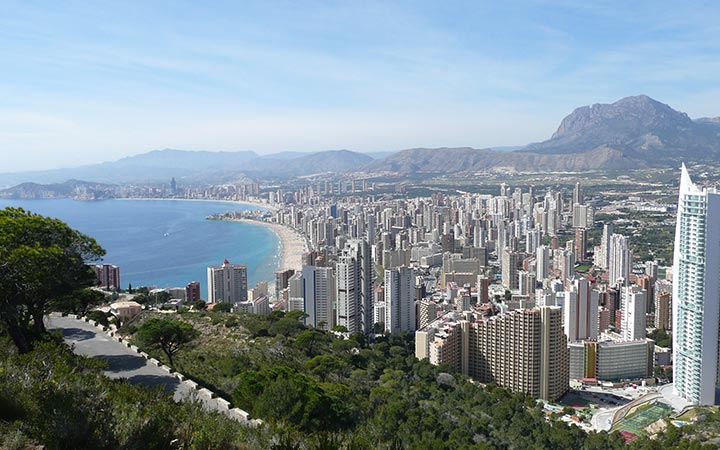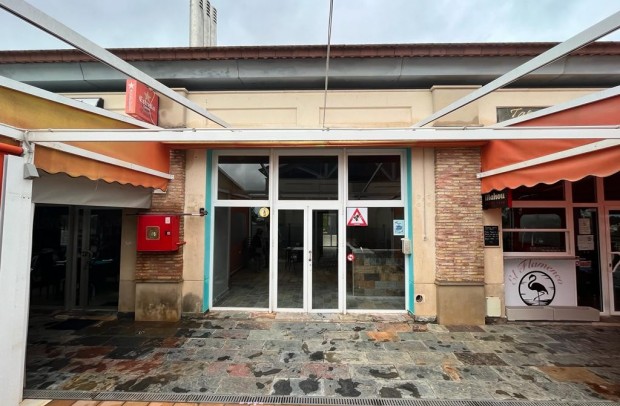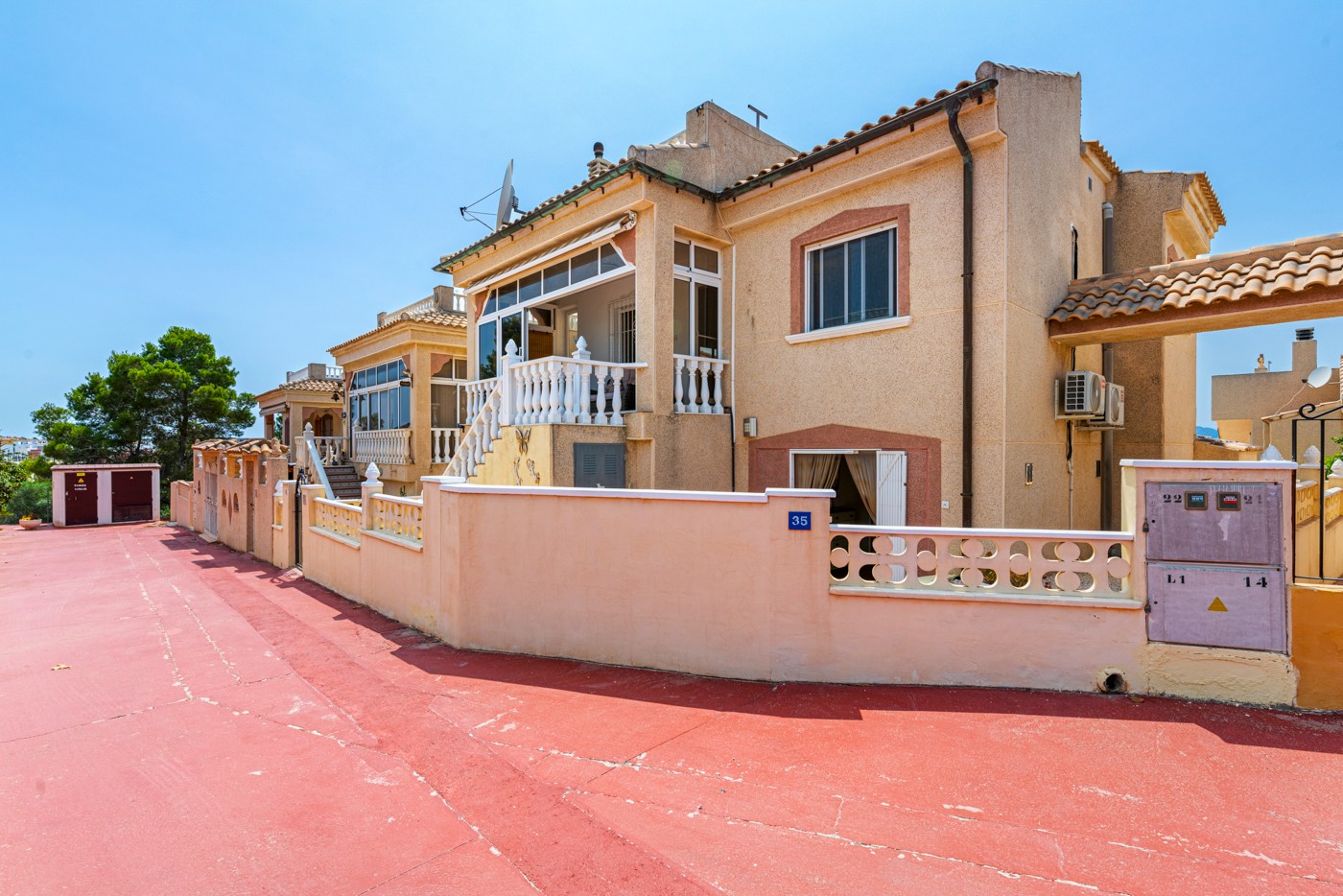Hi Julie and Tony,
Good to hear that you're feeling more optimistic about things now👍
I don't know whether you saw the "Good time to buy" thread earlier this week, but I posted this article from ThinkSpain, which gives a good overview of Spain's immigrant population in 2020. It's an interesting read, factual and still shows growth, despite Covid and Brexit. Of course, immigrants need housing, whether buying or renting, and I think it gives a more positive view than some other perspectives on offer.
Kind regards,
Kim
Foreigner numbers rise: Brits show second-biggest growth, despite Covid and Brexit
ThinkSPAIN Team 13/04/2021
FOREIGN residents in Spain increased by 2% last year - a six-figure sum – despite the pandemic and Brexit, and broke the 5.8 million barrier for the first time ever. Non-Spaniards living in the country account for just over 12% of the total headcount, of whom about six in 10 are from EU and EEA countries. For the purposes of the research, even though the figures were taken as at the last day of 2020 when the UK had been a third country for 11 months, its nationals were considered as being among those of the EU and EEA régime given that the Brexit Withdrawal Agreement allows for British citizens already resident in the other 27 to be treated broadly the same within their adopted countries. This means they lose their freedom of movement throughout other EU member States, where they would be treated as third-country nationals, but retain their EU 'green certificate' of registration if they do not wish to swap it for a foreigners' photo ID card, and are not subject to non-EU immigration rules if they are already officially resident in the member country. This definition, which puts Brits among citizens of the remaining EU-27 and also Norway, Iceland, Switzerland and Liechtenstein, may change for the purposes of statistics-gathering in future years. As it happened, Brits were the migrant community which saw the second-largest growth in Spain, at 6%, although a long way short of the Venezuelans, a segment of the population which swelled in size by 53% in 2020.
Romanian, Moroccan, British and Italian nationals most numerous
With the Covid-19 crisis reducing movement, migration to Spain has seen considerably less growth in the past calendar year, according to the Permanent Immigration Observatory, part of the department run by the Secretary-General for Inclusion Policy and Objectives and Social Prevision, which falls within the remit of the ministry for inclusion. Whilst growth in migration into Spain has been rising consistently since 2014, the pandemic broke the trend, but even then, 137,120 non-Spaniards made the country their home in 2020, even though this was the smallest increase seen since 2016. In the past decade, foreign resident numbers have risen by 19%, and in the past five years, by 16%. Last year's 2% rise was largely due to arrivals of citizens from the European Free Trade Association area (EFTA) – being the EU and EEA countries, with the UK included for the purpose of the research – and who totalled 100,930, or 3%, compared with third-country nationals who amounted to 36,190, or 1.6% more. Of the complete total of 5,800,468 foreigners officially resident in Spain, only 39% are from non-EFTA nations. In fact, just 15 nationalities make up three-quarters of all foreigners living in Spain, and who have been consistently led by Romanians, followed by Moroccans, for many years. The first of these totals 1,079,726, whilst the latter accounts for 811,530 – not including those of Moroccan birth or origin who have taken out Spanish citizenship, or children born in Spain to Moroccan parents. Brits are the third-largest foreign resident group, totalling 381,448, with Italians – whose community saw a similar level of growth in 2020 to that of British nationals, at 5.6% – not far behind at 350,981.Chinese (227,415), Bulgarians (200,468), Germans (179,437), Portuguese (176,772), French (176,488), Venezuelan (152,017), Ecuadorian (147,974), Colombian (136,762), Polish (104,481), Ukrainian (93,350) and Pakistani (87,251) nationals made up the rest of the top 15.
Seven provinces are home to six in 10 of Spain's foreigners
Two-thirds of foreigners live in just four of Spain's 19 self-governing regions -Catalunya, Madrid, Andalucía and the Comunidad Valenciana, in that order – and in just seven provinces.Madrid, a single-province region, is home to the most, followed by Barcelona, Alicante, Málaga, Valencia, and the single-province regions of the Balearic Islands and Murcia.In these seven provinces, 57% of Spain's total international residents live, and in all of these, their numbers exceed 225,000. The Greater Madrid region is home to 877,717, based upon figures as at the last day of 2020; the province of Barcelona, to 747,812; Alicante, to 388,789; Málaga to 270,435; Valencia to 266,436, and the Balearic Islands to 270,200. As for Brits, though, even neighbouring provinces show vastly different figures: In the Comunidad Valenciana, just under 79,000 residents are British, of whom almost 70,000 are in the province of Alicante and the remainder scattered between those of Valencia and Castellón. Taken as a percentage of the total census, though, Madrid and Barcelona are far less cosmopolitan than much of the east coast: the provinces of Almería, the Balearics, Lleida and Girona (Catalunya), and Alicante have the biggest proportion of non-Spaniards among their inhabitants.
Average ages: Non-EU nationals younger than Spaniards and northern Europeans older
The socio-demographic profile of foreigners in Spain is highly diverse, although men generally outnumber women, and the average age across the board is about 40, a few years younger than the average age of a national-born Spaniard, meaning, as the Permanent Immigration Observatory states, non-Spanish residents are 'contributing to reducing the ageing of the population'. Foreigners from EFTA countries tend to be older – both older than the average for non-Spanish residents, and older than the average for Spaniards. The average age of a British national living in Spain is 54; the average age of a German national is 49, whilst, on the flip side, the average age of a Moroccan or Pakistani national residing in Spain is 33. These are mean averages, or the combined total of all ages divided by the numbers of inhabitants, so it does not mean that 'most' or even a 'typical' Brit or German is aged 54 or 49; the age scale among northern Europeans in Spain is very wide, due to its appeal as a retirement idyll at the same time as being home to younger, working-aged adults, and British and German children born there – however, for eastern and southern Europeans, and third-country nationals, the average age is typically lower as they are more likely to be moving to Spain for work.Between 10 and 20 years ago, Latin American countries tended to be among the largest output nations for Spain's foreigners, after Morocco, particularly Colombia and Ecuador, but the financial crisis saw a high number of these returning when work dried up and, conversely, their numbers fell because Latin Americans are able to acquire Spanish nationality after a much shorter time, and hold dual nationality, meaning they 'became Spaniards' and 'fell off' the foreigners' list. In fact, the only nationality in Spain whose numbers declined in 2020 was Ecuadorian, but the report does not confirm whether this was due to residents returning to Ecuador – or leaving to live in another country altogether – or whether more Ecuadorians than before had successfully applied for Spanish citizenship."
























 My name's Alex and this is my website all about Algorfa in Spain. Register now for free to talk about Brexit and the EU: living, holidaying and moving to Algorfa and much more!
My name's Alex and this is my website all about Algorfa in Spain. Register now for free to talk about Brexit and the EU: living, holidaying and moving to Algorfa and much more!
















